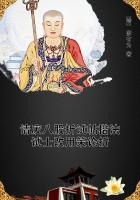The Fescennine and Saturnian were the same; for as they were called Saturnian from their ancientness, when Saturn reigned in Italy, they were also called Fescennine, from Fescennia, a town in the same country where they were first practised. The actors, with a gross and rustic kind of raillery, reproached each other with their failings, and at the same time were nothing sparing of it to their audience. Somewhat of this custom was afterwards retained in their Saturnalia, or Feasts of Saturn, celebrated in December; at least, all kind of freedom in speech was then allowed to slaves, even against their masters; and we are not without some imitation of it in our Christmas gambols. Soldiers also used those Fescennine verses, after measure and numbers had been added to them, at the triumph of their generals; of which we have an example in the triumph of Julius Caesar over Gaul in these expressions: Caesar Gallias subegit, Nicomedes Caesarem. Ecce Caesar nunc triumphat, qui subegit Gallias; Nicomedes non triumphat, qui subegit Caesarem.
The vapours of wine made those first satirical poets amongst the Romans, which, says Dacier, we cannot better represent than by imagining a company of clowns on a holiday dancing lubberly and upbraiding one another in extempore doggerel with their defects and vices, and the stories that were told of them in bake-houses and barbers' shops.
When they began to be somewhat better bred, and were entering, as I may say, into the first rudiments of civil conversation, they left these hedge-notes for another sort of poem, somewhat polished, which was also full of pleasant raillery, but without any mixture of obscenity. This sort of poetry appeared under the name of "satire" because of its variety; and this satire was adorned with compositions of music, and with dances; but lascivious postures were banished from it. In the Tuscan language, says Livy, the word hister signifies a player; and therefore those actors which were first brought from Etruria to Rome on occasion of a pestilence, when the Romans were admonished to avert the anger of the gods by plays (in the year ab urbe condita CCCXC.)--those actors, I say, were therefore called histriones: and that name has since remained, not only to actors Roman born, but to all others of every nation. They played, not the former extempore stuff of Fescennine verses or clownish jests, but what they acted was a kind of civil cleanly farce, with music and dances, and motions that were proper to the subject.
In this condition Livius Andronicus found the stage when he attempted first, instead of farces, to supply it with a nobler entertainment of tragedies and comedies. This man was a Grecian born, and being made a slave by Livius Salinator, and brought to Rome, had the education of his patron's children committed to him, which trust he discharged so much to the satisfaction of his master that he gave him his liberty.
Andronicus, thus become a freeman of Rome, added to his own name that of Livius, his master; and, as I observed, was the first author of a regular play in that commonwealth. Being already instructed in his native country in the manners and decencies of the Athenian theatre, and conversant in the archaea comaedia or old comedy of Aristophanes and the rest of the Grecian poets, he took from that model his own designing of plays for the Roman stage, the first of which was represented in the year CCCCCXIV. since the building of Rome, as Tully, from the Commentaries of Atticus, has assured us; it was after the end of the first Punic War, the year before Atticus was born. Dacier has not carried the matter altogether thus far; he only says that one Livius Andronicus was the first stage-poet at Rome. But I will adventure on this hint to advance another proposition, which I hope the learned will approve; and though we have not anything of Andronicus remaining to justify my conjecture, yet it is exceeding probable that, having read the works of those Grecian wits, his countrymen, he imitated not only the groundwork, but also the manner of their writing; and how grave soever his tragedies might be, yet in his comedies he expressed the way of Aristophanes, Eupolis, and the rest, which was to call some persons by their own names, and to expose their defects to the laughter of the people (the examples of which we have in the fore-mentioned Aristophanes, who turned the wise Socrates into ridicule, and is also very free with the management of Cleon, Alcibiades, and other ministers of the Athenian government). Now if this be granted, we may easily suppose that the first hint of satirical plays on the Roman stage was given by the Greeks--not from the satirica, for that has been reasonably exploded in the former part of this discourse--but from their old comedy, which was imitated first by Livius Andronicus. And then Quintilian and Horace must be cautiously interpreted, where they affirm that satire is wholly Roman, and a sort of verse which was not touched on by the Grecians. The reconcilement of my opinion to the standard of their judgment is not, however, very difficult, since they spoke of satire, not as in its first elements, but as it was formed into a separate work--begun by Ennius, pursued by Lucilius, and completed afterwards by Horace.
The proof depends only on this postalatum--that the comedies of Andronicus, which were imitations of the Greek, were also imitations of their railleries and reflections on particular persons. For if this be granted me, which is a most probable supposition, it is easy to infer that the first light which was given to the Roman theatrical satire was from the plays of Livius Andronicus, which will be more manifestly discovered when I come to speak of Ennius.
In the meantime I will return to Dacier.













